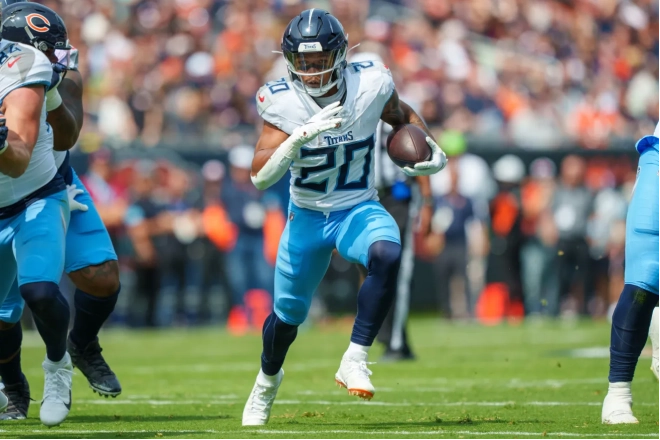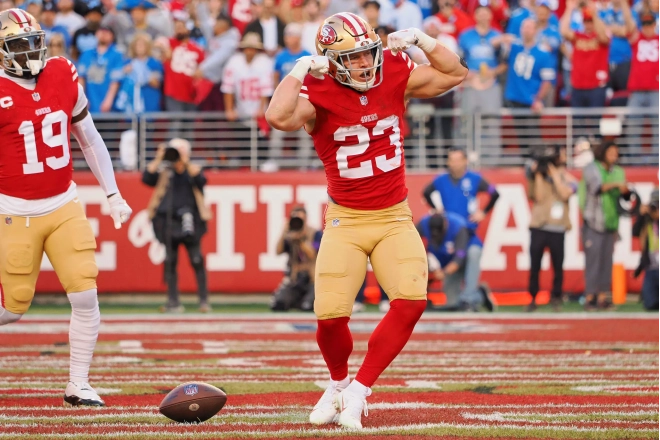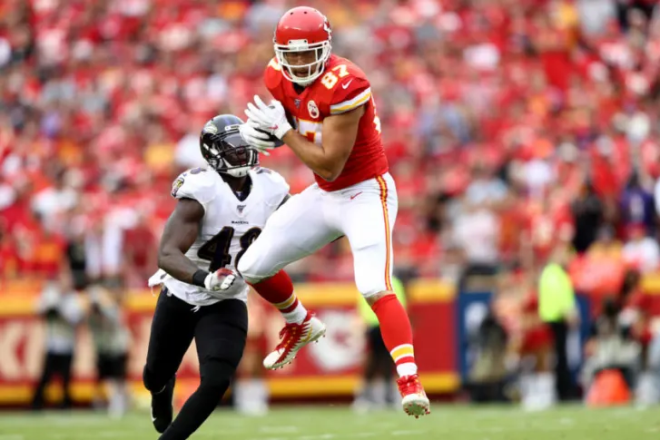Many fans have been made aware of the current running back plight to be properly compensated. In the shadows of this movement is the looming threat from fans fearing this dissatisfaction might spread further on offense to the tight end.
Quarterbacks are hoarding too much cap space, but the position is so vital that everyone accepts it. The running back compensation issue is catching mainstream attention due to the popularity of the position and willingness of the biggest names at the spot to speak out against the current pay scale system. The tight end crisis is receiving less attention because star players at the position have quietly accepted mediocre pay for outstanding work. The best tight ends, such as eight-time Travis Kelce, provide every skill of a top wide receiver plus blocking. Yet a franchise tight end is paid half or two-thirds of a franchise WR.
In an interview with Vanity Fair, Kelce said, "[I]t makes you think you're being taken advantage of... My managers and agents love to tell me how underpaid I am. Any time I talk about wanting more money, they’re just like, 'Why don’t you go to the Chiefs and ask them?'. When I saw Tyreek go and get 30 [million] a year, in the back of my head, I was like, man, that’s two to three times what I’m making right now." Kelce continues, "I’m like, the free market looks like fun until you go somewhere and you don’t win. I love winning. I love the situation I’m in."
In stark contrast to Kelce's situation Kirk Cousins is set to make $231 million by the end of 2023, of which $229 million is or was guaranteed:
- 2012: standard 4-yr rookie deal
- 2016: $19.9M fully guaranteed
- 2017: $23.9M fully guaranteed
- 2018: $84.0M fully guaranteed
- 2020: $66.0M fully guaranteed
- 2022: $35.0M fully guaranteed
Kirk Cousins has somehow played the system. Cousins is a non-MVP or elite-rated QB that is routinely well-compensated. The NFL is a QB-centric league and that warps the cap figures. At no other positions will an average player be well compensated. No average TE, RB or WR can ever dream of making Kirk Cousins money even if they're more vital parts of their team.
Le'veon Bell is one of the only experiments of a skill player attempting to game the system. His sit-out largely didn't work. Bell lost a season in the middle of his career and accumulated a lifetime worth of fines ($852,000 each game week) and a chaotic spell with his new team made it a turbulent closing chapter to one of the league's most popular players at his position. The sit-out negotiation strategy has soured in the minds of most skill players. It's not a a proven path to compensation.
The term "diva" isn't usually associated with TEs. It's usually reserved for RBs and WRs running their mouth and acting out for payment. It would be a new trend, but if it breaks ground and opens up the floodgates of compensation for others would it really be remembered in bad light?
The efforts and intentions of running backs to receive higher compensation are admirable but look to be getting nowhere. Why? Running backs are in a messed up situation because they quick to catch damage, slow to heal and easy to replace. The plethora of talented running backs works against a high compensation argument for the very best at the position. The drop off from a starting RB to his backups is A+ to B- at worst.
Tight ends might not face such a daunting future. The position doesn't experience as much turnover, TE' are famed for their durability and are just not as easily replaced since the position is not saturated with talent. The drop off of talent depth behind a starter can be drastic, going from an A+ clear playmaking threat to a D+ catch/block player who is largely immobile outside a few routes.
In a salary cap league, owners and fans benefit a like because it ensures a more competitive league. On the other hand, when teams find and grow talent they are challenged to keep talent, and end up cutting corners on compensation. Perhaps its time that NFL top tight end workhorses risk being called selfish/self-centered to raise awareness of the compensation inequality compared with WRs.





